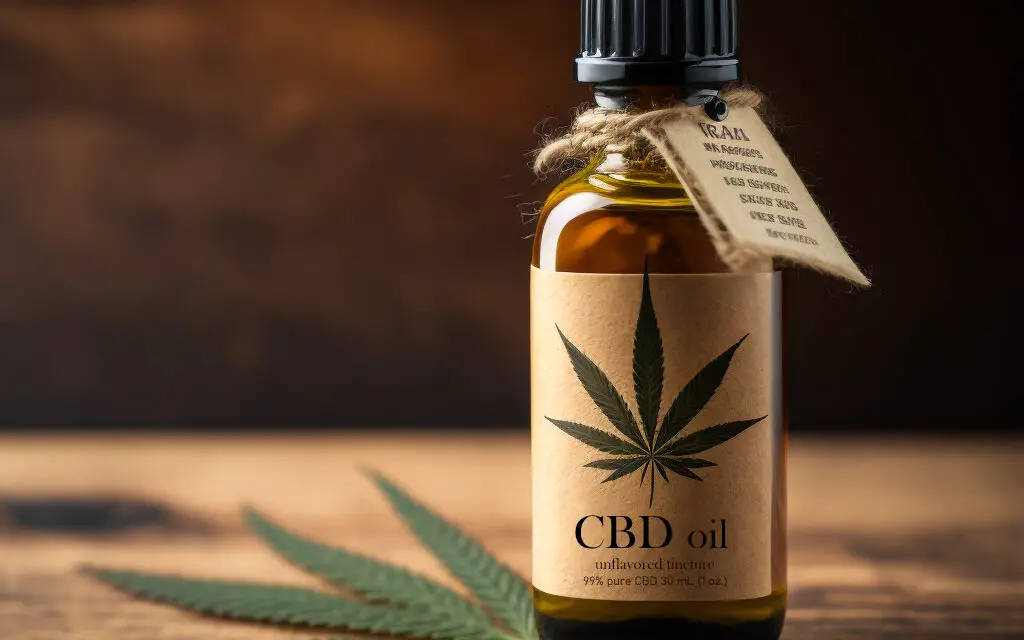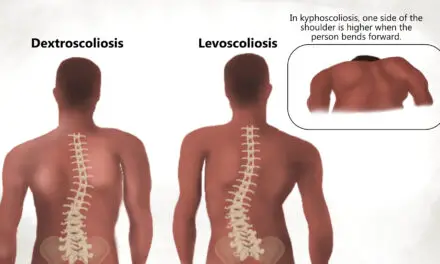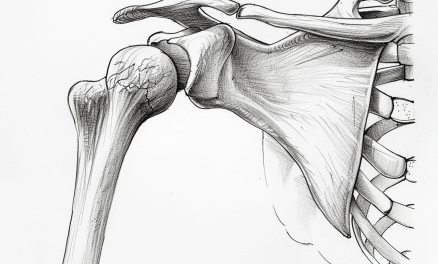Cannabis has been a hot topic since its prohibition in 1937, but prior to that, humans had used cannabis as a medication since the end of the last Ice Age in Italy. Today we’re going to put politics and societal beliefs aside and discuss the known facts of the cannabidiol, or CBD, oil produced by the cannabis plant. Regardless as to where you stand on the recreational use of cannabis, CBD has become collectively accepted as a form of natural medication.
The cannabis plant has hundreds of separate chemical entities over 60 of which are cannabinoids. The two most common cannabinoids are CBD and tetrahydrocannabinol (THC). THC is famous for its psychoactive effect and is the primary cited reason for its listing as a dangerous drug. CBD is the chill brother to THC and is found in the sativa strain of the cannabis plant.
Pros and cons of using CBD oil for pain relief
There have been references to the healing power of cannabis throughout history, but the truth is that it can be a safe and often very effective remedy for many health issues. From reducing inflammation to helping with anxiety and depression, CBD can be a powerful tool in your healthcare arsenal. Despite common misbeliefs, CBD doesn’t get you high, but it can provide relief from a variety of ailments without any of the harsh side effects associated with some pharmaceutical drugs.
Pros
Some of the benefits of cannabis include:
- anti-inflammation: CBD has strong anti-inflammatory properties, making it effective in reducing inflammation and helping with a range of ailments such as acne, allergies, and asthma.
- Relief from chronic pain: Studies have shown that CBD is effective in reducing inflammation and chronic pain. This makes it ideal for those suffering from multiple sclerosis (MS), arthritis, fibromyalgia, and migraines. It has even been shown to relieve chronic pain for those who suffer from cancer related pain.
- Reduced anxiety: CBD has been proven to help reduce symptoms of anxiety and depression, with many people reporting improved moods and increased confidence.
- Improved sleep: Insomnia can be caused by a variety of factors but CBD has been shown to promote healthier sleeping habits with fewer disturbances throughout the night.
- Cancer treatment: Research suggests that CBD may be beneficial in treating certain types of cancer. Early studies suggest that it could play an important role in the treatment of this devastating disease.
- Improved cardiovascular health: CBD has been found to help reduce cholesterol and improve heart health, making it a great choice for those looking to maintain a healthy lifestyle.
- Natural antioxidant: CBD is a natural antioxidant, which means it can help protect the body from free radicals and other damage-causing molecules. This helps to reduce inflammation and improve overall health.
- Non-psychoactive: CBD does not alter one’s perception or give the sensation of being “high.”
- No systemic or addictive effects: To date, no studies list any negative long-term side effects in controlled doses, but anyone who wants to begin a CBD regime should check with a medical professional as there may be some interactions with other medications.
Cons
Just like any other medication, CBD also has its cons. Here are some of the potential negatives to be aware of:
- Interactions with other medications: Some medications can interact with CBD, making it important to talk to your doctor before taking it if you’re already on a prescription.
- Side effects: CBD can cause some side effects such as fatigue, dry mouth, and low blood pressure.
- Not all products are not created equal: Not all CBD products are created equal and it’s important to do your research before purchasing any CBD product, anything with pesticides or additives should be avoided.
- Strong smell/taste: Some people find the smell and taste of CBD oil to be overwhelming and off-putting.
- Skin irritation: As with any topicals, CBD may cause skin irritation if used incorrectly or if you are allergic to the product.
We seem to be inundated with information on CBD oil thanks to the 2018 Farm Bill which has brought a significant amount of attention to cannabidiol (CBD) oil by allowing the cultivation of cannabis. With so many products and buzzwords related to CBD on the market, it’s important to gain an understanding of CBD oil before deciding what products to buy.
The increasing availability of CBD oil presents both advantages and disadvantages that need to be critically considered. On one hand, CBD is known for its potential therapeutic benefits, such as treating anxiety and chronic pain, but on the other hand, there’s a lack of regulation around CBD-based products that could lead to adverse health effects.
There’s also a common misconception in society in which people believe that “natural” means less is good but more is better (appeal to nature fallacy). Just like in the cases of alcohol and caffeine, dosing is important. To better understand the potential benefits and risks of CBD oil, consider current research and regulations surrounding its use. This is especially important now as such matters are changing dramatically in the modern climate.
Side effects of CBD oil
Although CBD is safe to use and has many potential health benefits, there are also some side effects that should be taken into consideration. The following is a list of the possible side effects of using controlled CBD oil:
- Fatigue: some people may feel more tired than usual when taking CBD, especially if they are already prone to fatigue.
- Diarrhea: chronic users have reported an increase in loose stool but the reason for this is not yet known.
- Changes in appetite or weight: CBD is capable of stimulating one’s appetite.
- Liver damage: high doses of CBD can be toxic to the liver, so it’s important to use caution when taking CBD products.
Side effects of CBD are minimal and generally considered safe, but you should always consult a medical professional before using any supplement or medication. This way, you can ensure that the product is right for you and you can get the best possible results from its use.
Remember that everyone reacts differently to different compounds, so it’s best to start with small doses and adjust accordingly if needed.
Is CBD legal?
The legal status of CBD in the United States is complicated and varies state by state. Federally, hemp-derived CBD products with less than 0.3% THC are legal under the 2018 Farm Bill. However, some states have enacted their own laws regarding the sale and use of CBD products which may differ from federal law.
In 2023, the states with the most stringent laws in place for CBD are Idaho and West Virginia with conflicting reports on the stance for South Dakota and Nebraska. Check your local laws before purchasing or using any CBD products to ensure that you are abiding by both state and federal regulations. Also, research the company’s background before making a purchase as some may not be compliant with all applicable laws and regulations.
Always do your own research on the legal status of CBD before making any purchases or using certain products. By familiarizing yourself with federal and state laws, you can ensure that you are operating within all applicable regulations and remain compliant when purchasing or consuming CBD.
“Medication, your medication makes me high.” Reggae artist Stephen Marley.
How does CBD oil relieve pain?
CBD works with the endocannabinoid system, or ECS. The ECS is responsible for regulating physiological functions such as pain, sleep, appetite, and stress responses. When CBD is introduced, it binds to the ECS receptors, helping to reduce inflammation and pain in the body. In addition, CBD also has antioxidant and neuroprotective properties that can help to reduce pain and improve overall health.
The anti-inflammatory effects of CBD are helpful for reducing inflammation in certain conditions, such as arthritis, fibromyalgia, and psoriasis. The antioxidant properties can help protect the body from oxidative stress, which is associated with increases in cognitive ability and overall mortality while decreasing the possibility of sepsis. Finally, CBD can also help to reduce stress and anxiety levels, which can often be a cause of chronic pain.
Does CBD oil work for mental health problems?
CBD can be beneficial for those dealing with mental health issues such as anxiety and depression. Studies have shown that CBD has an antidepressant-like effect and can help reduce symptoms of post-traumatic stress disorder (PTSD). It has also been found to be useful in managing social anxiety, panic attacks, ADHD, and obsessive compulsive disorder.
Also, CBD has neuroprotective properties that can help protect against mental decline, memory loss, and other cognitive impairments. By modulating the activity of certain neurotransmitters in the brain, such as serotonin, dopamine, and gamma-aminobutyric acid (GABA), CBD can help to regulate mood and alleviate symptoms of anxiety and depression, reduce stress levels, and improve sleep quality—the lack of which is often associated with mental health issues.
Is it safe to use CBD oil during pregnancy?
There is little research into the potential risks and benefits associated with using CBD during pregnancy, and as such, it is still being studied with the available evidence is inconclusive. However, there’;s evidence that cannabis is used during pregnancy in traditional Chinese medicine for numerous ailments and as a preventative measure for future conditions, but it’s unknown what compound of the plant is used in a medical capacity.
Preliminary evidence suggests that taking CBD while pregnant may aid in alleviating some side effects associated with pregnancy, but a study conducted on mice shows that CBD does transfer and collect in organs of the fetus. Further documentation indicates that excessive cannabis use in teens can stunt the brain’s development, but the same is not found in a fully formed adult brain. More studies are needed to make any conclusive statements, and your health care provider should be included in helping you make your decision.
Where can I buy CBD oil?
Google “CBD oil” and you’ll garner you more results than you could possibly get through in a lifetime, so how do you go about narrowing the results? Add “third party tested” to your search and begin there. Not all companies test their products regularly to ensure consistency which is especially important when it comes to dosing for medical purposes. Even fewer companies will get their products tested by a third (impartial) party.
Look for organic certifications and make sure the product has been tested for contaminants such as:
- heavy metals
- solvents
- pesticides
Keep in mind that having “organic” on the label is not the same as a certification. Research the company’s history and any available information on its manufacturing practices.
My last recommendation is to read customer reviews in order to learn more about the product quality and user experiences before making a purchase.
There are many things to consider when purchasing CBD products in order to make sure you are buying quality products. Taking the time to research the company, read customer reviews and check for third-party lab tests will help ensure that you get a safe and effective product.
Resources for cannabis and CBD oils
Unfortunately there aren’t many unbiased resources where cannabis is concerned, but here are some information links:
Center for Disease Control (CDC)
World Health Organization (WHO)
If you’re interested in learning about cannabis, Coursera has several classes on cannabis. Although documentaries are biased in their very nature, they are not without merit:
“The Ultimate Guide to CBD” by Health Access on YouTube
“Why You Should Take Medical CBD Crash Course for Healthcare Professionals – Why Treat with CBD?” by American Academy of Craniofacial Pain on YouTube
“2-Minute Neuroscience: CBD” by Neuroscientifically Challenged on Youtube
“Weed the People” on Netflix centers around parents seeking medical marijuana for their children.
“Grass is Greener” also on Netflix, focuses on the history and socioeconomics of cannabis.
“Breaking Habits” on Vudu follows a group of women who cultivate cannabis and dress as nuns to help dispel the negative perception of cannabis.
“Murder Mountain” on Netflix is the seedy underbelly showcasing California’s Humboldt County, an area known for cannabis cultivation, and all the people that have disappeared.

Lindsay Jones, LMT
Lindsay is a licensed massage therapist and a mother of three, who specializes in rehabilitation with emphasis on prenatal and postnatal care.
After graduating from the National Holistic Institute in San Jose, Calif., she went on to study how pain affects the body and how it can be alleviated during the constant changes of pregnancy and early motherhood.
In her free time, Lindsay has a deep love of all forms of art from storytelling and music to sewing and painting.






